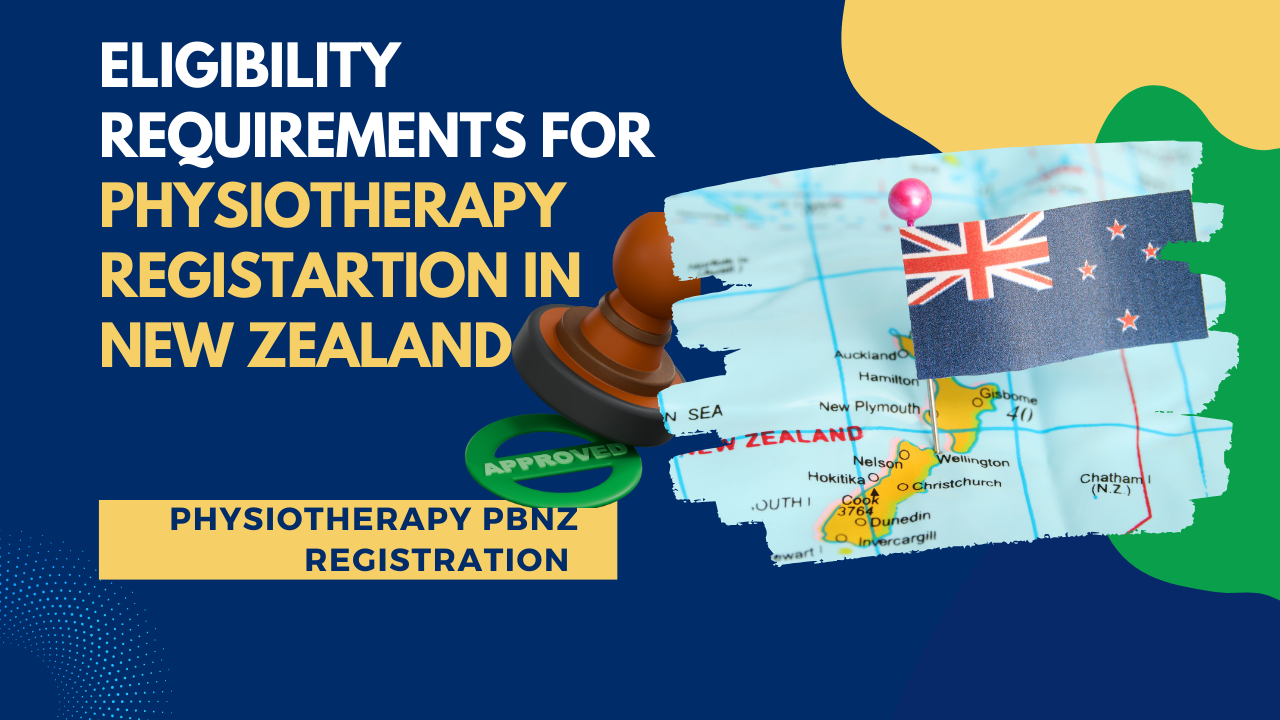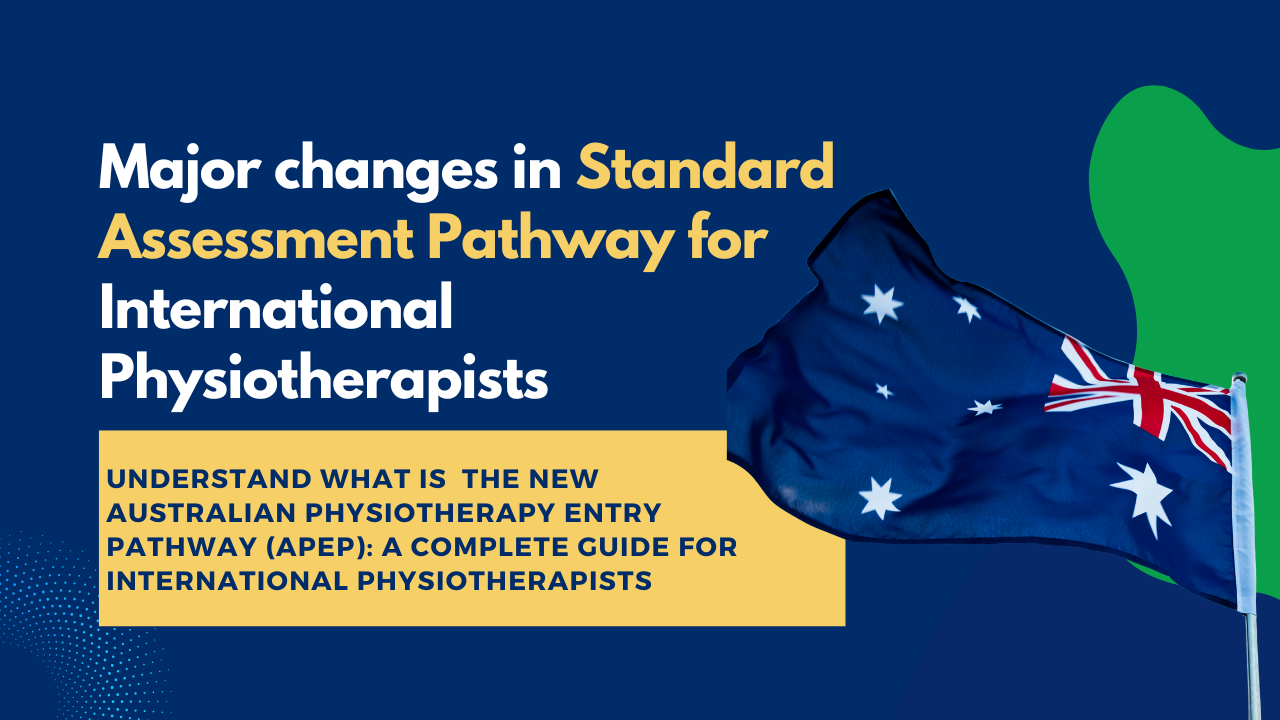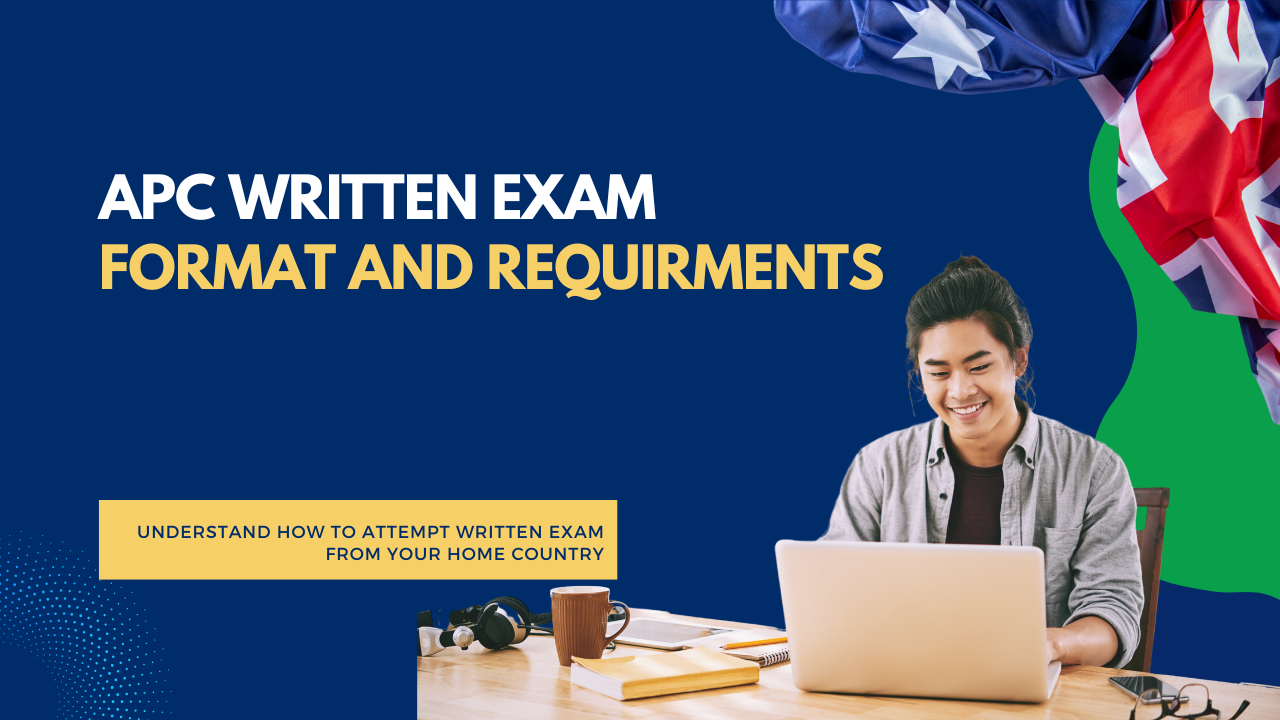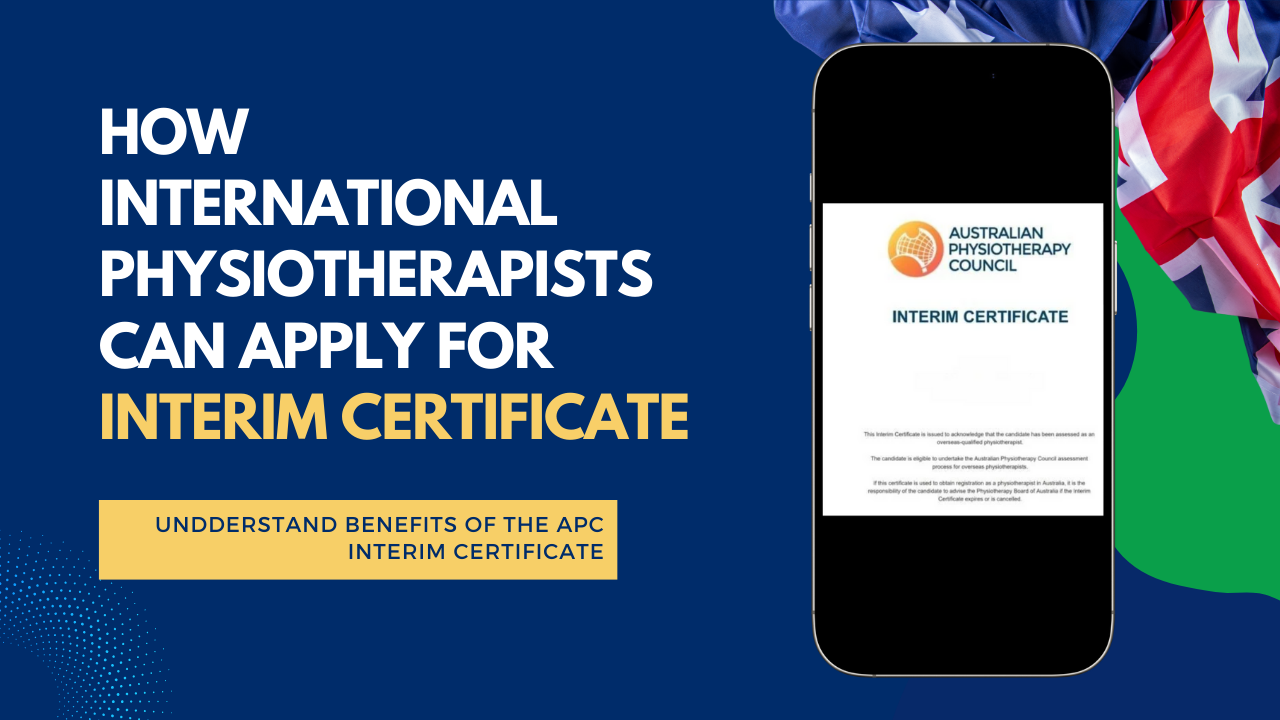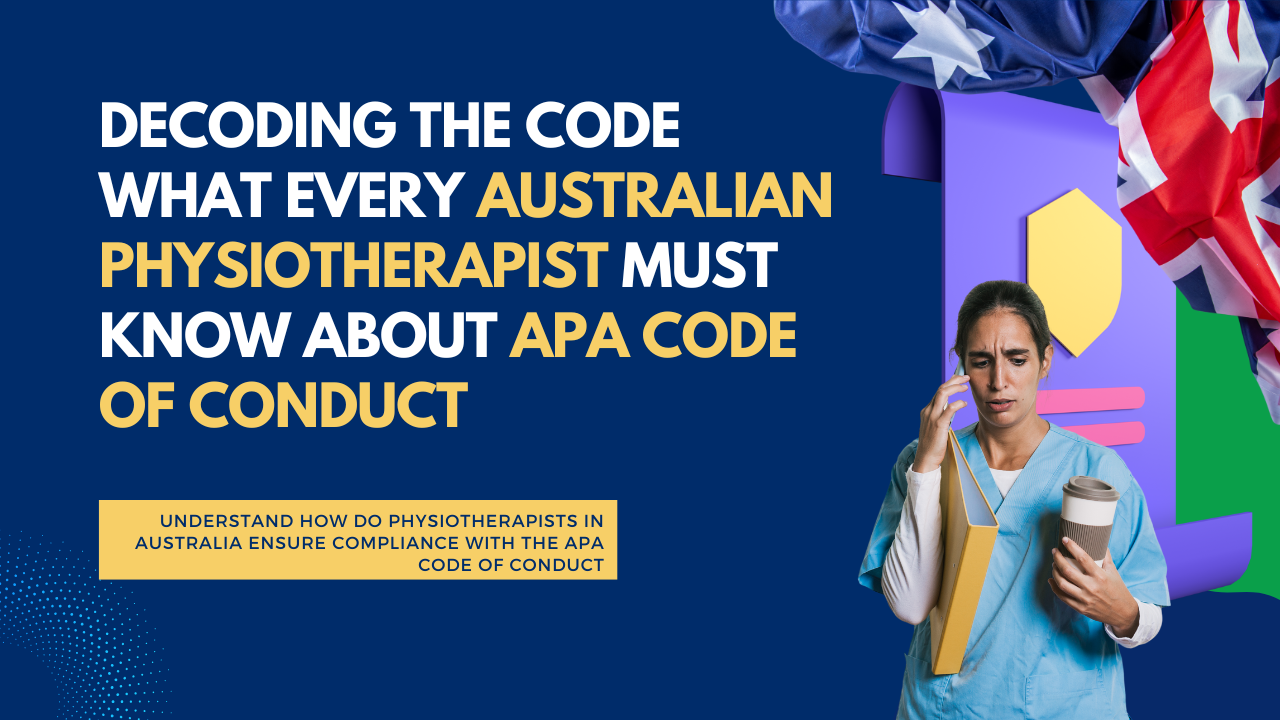If you are planning to register as a physiotherapist in New Zealand, understanding the eligibility criteria set by the Physiotherapy Board of New Zealand – PBNZ is important. This comprehensive guide will outline the requirements for all applicants, with a specific focus on English Language Proficiency, Fitness to Practice, Primary Physiotherapy Qualification, and Recency of Practice.
Thank you for reading this post, don't forget to subscribe!PBNZ Eligibility Requirements for All Applicants
English Language Proficiency Requirements
The Physiotherapy Board of New Zealand (PBNZ) emphasizes the importance of English language proficiency for physiotherapists seeking registration. Applicants must demonstrate that they can comprehend and communicate effectively in English within a professional setting. Below are the pathways to meet this requirement:
Option A: English as Your First Language
- Provide evidence that English was the first language you spoke.
- Examples of suitable evidence include passports showing citizenship from countries where English is the primary language.
- False claims regarding English as your first language are likely to lead to application rejection.
Option B: Qualification from Recognized English-Speaking Countries
- Evidence of completing a physiotherapy qualification in the United Kingdom, Ireland, Canada, or South Africa.
Option C: Standardized English Language Tests
Submit certified results (less than two years old) from one of the following accepted exams:
IELTS Academic:
- Minimum score: 7 in reading, listening, and speaking.
- Minimum score: 6.5 in writing.
- Scores can be combined from two sittings within six months (no score below 6.5).
Occupational English Test (OET):
- Minimum score: 350 in reading, listening, and speaking.
- Minimum score: 300 in writing.
- Scores can be combined from two sittings within six months (no score below 300).
PTE Academic:
- Minimum overall score: 65 in each communicative skill (listening, reading, writing, speaking).
- Scores can be combined from two sittings in six months (no score below 58 in any skill).
TOEFL iBT:
- Minimum total score: 94.
- Sectional minimums: 24 (listening), 24 (reading), 27 (writing), 23 (speaking).
- Scores can be combined from two sittings within six months (no sectional score below specified thresholds).
Option D: Other Evidence
- Provide alternative evidence of English proficiency if none of the above applies.
- Ensure this option is only used if other criteria are not met.
Important Note: Submitting content generated by AI systems may lead to rejection if it indicates inadequate English proficiency. Ensure all application materials reflect your authentic communication skills.
PBNZ Fitness to Practice Requirements
Applicants must demonstrate their ability to practice safely and competently. You will be asked to disclose information related to:
- Convictions or Investigations: Declare any current or past charges or convictions.
- Physical or Mental Health: Disclose conditions that might impair your professional practice.
- Communication Issues: Address any challenges in effectively communicating in English.
- Professional Misconduct: Disclose unresolved complaints or adverse findings from professional bodies or regulatory authorities.
Answering “YES” to these questions does not automatically disqualify you. The Board may request supporting documents to assess your situation.
PBNZ Primary Physiotherapy Qualification Requirements
You must hold a tertiary-level physiotherapy qualification that meets the standards required for registration in the country where it was issued. Additional requirements include:
- Certification of your qualification.
- Evidence aligning your qualification with New Zealand’s standards.
- Specific pathways for graduates of Fiji National University since 2013, enabling faster processing.
PBNZ Recency of Practice Requirements
To legally practice as a registered physiotherapist in New Zealand, you need to apply for an Annual Practicing Certificate – APC. This involves:
- Current Practice: Applications proceed normally if you have practiced within the last three years.
- Return to Practice (RTP): If you last practiced more than three years ago, you may need to complete an RTP program in New Zealand.
- Retraining Requirements: If ineligible for the RTP program, retraining as a physiotherapist may be necessary.
Additional Considerations for PBNZ Registration
- The Board reserves the right to request further evidence or documentation during the application process.
- Detailed eligibility criteria may vary depending on the specific registration pathway. Refer to the PBNZ’s official website for pathway-specific guidance.
Disclaimer
This blog provides a general overview of the Physiotherapy Board of New Zealand PBNZ registration requirements. For the most accurate and up-to-date information, please visit the official website of the PBNZ.
Why New Zealand is the Best Place to Practice Physiotherapy
Expanding Scope of Physiotherapy in New Zealand
The healthcare system in New Zealand is renowned for prioritizing physiotherapy in NZ, making it a key component of patient care. With an increasing demand for specialized services, physiotherapy in New Zealand offers a wide range of opportunities, from musculoskeletal rehabilitation to sports therapy and neurological care. This broad scope ensures that physiotherapists can pursue diverse and rewarding career paths.
Professional Growth in Physiotherapy in NZ
Practicing physiotherapy in New Zealand means working in a system that values autonomy and expertise. Physiotherapists in New Zealand can assess, diagnose, and treat patients independently, providing them with the authority and freedom to make impactful decisions. This level of professional responsibility encourages growth and skill development, making physiotherapy in NZ a sought-after career choice.
Benefits of Practicing Physiotherapy in New Zealand
Becoming a physiotherapist in New Zealand comes with several advantages:
- High Demand for Professionals: The growing importance of physiotherapy in NZ ensures stable and secure career opportunities.
- Immigration Benefits: Physiotherapists are included in New Zealand’s Green List, simplifying the path to permanent residency.
- Exceptional Work-Life Balance: The country’s stunning landscapes and recreational activities complement shorter working hours, providing a fulfilling lifestyle for practitioners of physiotherapy in New Zealand.
Supportive Community for Physiotherapists in New Zealand
New Zealand fosters an inclusive and collaborative environment for professionals in physiotherapy in NZ. Registration and licensing processes, supported by the Physiotherapy Board of New Zealand, ensure that practitioners are well-equipped to meet the country’s high standards of care. Additionally, physiotherapy associations and organizations provide ongoing professional support to physiotherapists in New Zealand, further enhancing their careers.
Why Choose Physiotherapy in NZ?
The scope of physiotherapy in New Zealand extends beyond clinical practice, including roles in education, sports teams, and research. This variety allows practitioners to shape their careers according to their interests. New Zealand’s emphasis on innovation in healthcare ensures that professionals are always at the forefront of advancements in physiotherapy.
Start Your Professional Practice Physiotherapy in New Zealand
Explore the professional, cultural, and lifestyle opportunities awaiting you in this beautiful country. Begin your registration process and take the first step towards an exciting future in physiotherapy in New Zealand today.
If you’re planning to apply for PBNZ registration, want to explore suitable pathways, or need mentoring to build your career and find a physiotherapy job in New Zealand, book a call with your mentor today!
